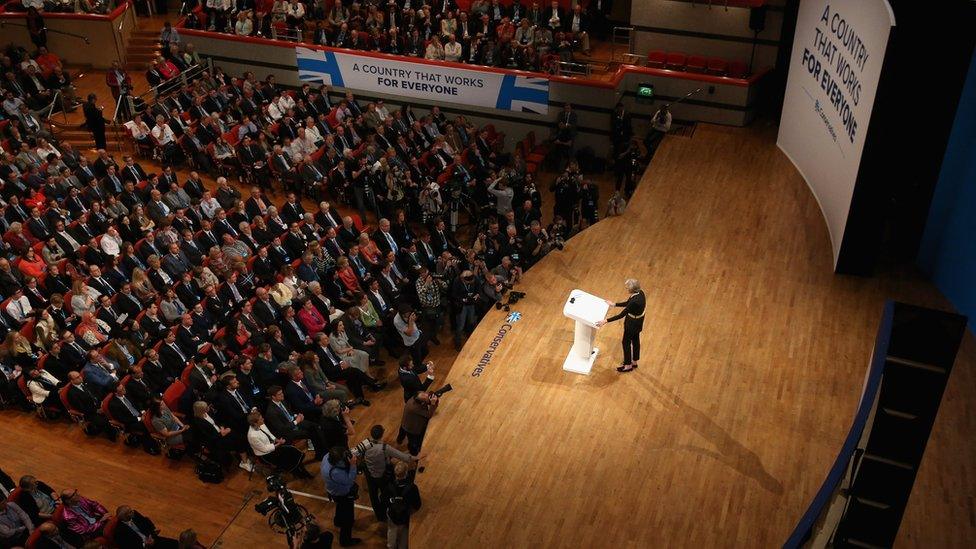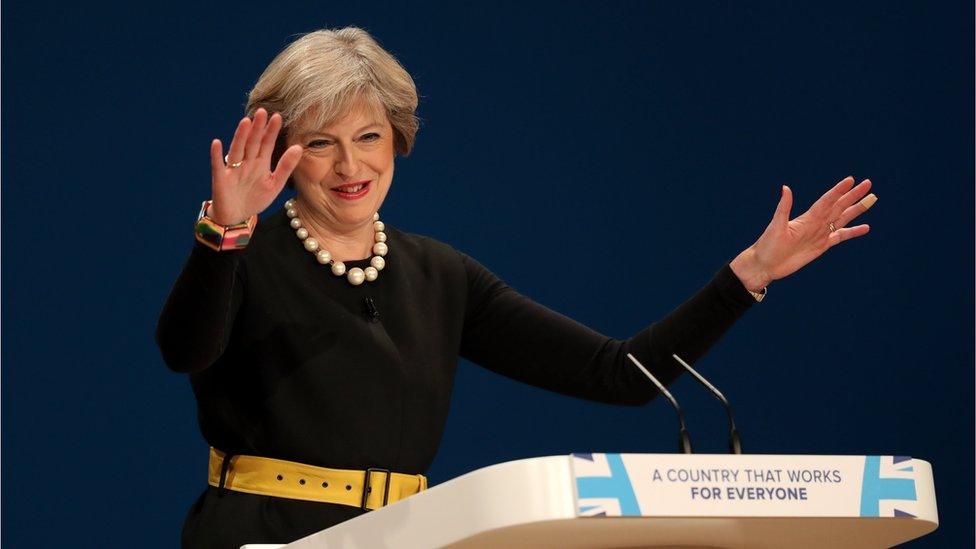Filling in the Brexit blanks
- Published

Eighty one days ago she was on the steps of Downing Street as prime minister for the first time.
One hundred days ago the country made the decision that led to her moving in.
Theresa May has appeared dozens of times on Tory conference platforms before, but before she uttered a word, this afternoon marked an occasion that will matter to the party's history.
She may not have been elected as prime minister, but with four years until the next general election, far from sticking to David Cameron's plan she plans not to waste a minute implementing her agenda.
It will be far from easy - former ministers are already muttering about her direction. She has a tiny majority, and no individual mandate for her reforms.
But on the biggest challenge before her, taking the UK out of the European Union, Theresa May still is characteristically reticent.

Theresa May yet to confirm the government position on the single market
She filled in some of the blanks about the timing of the process that will take us out of the European Union - giving the promise of a grandly-titled act of Parliament that in truth, is largely an expected piece of admin.
But there is still no clear position evident from government about our position inside or outside the free trade area, the single market - just the holding pattern that's been articulated by different ministers many times, albeit with different emphases.
Today the prime minister made it clear that the UK would no longer be under the jurisdiction of the European Court of Justice, another hint perhaps underlining the expectation that we won't be in the single market.
Hard to give
However, ministers have told me escaping the ECJ rules don't preclude trading inside the single market.
Sources point to Norway, which trades freely but is not a member of the court. The broad principle is all that we can be sure of - simply, ministers will make it as easy as possible for businesses to keep trading in the EU, but there will have to be new immigration controls too.
And many EU countries will find that combination hard to give.
Yet today was about the moment, not the meaning. Theresa May made it clear she'll resist any attempts by politicians to unpick the referendum result, or attempts by Eurosceptics to speed ahead with a rapid exit, and indeed any effort by the SNP to use Brexit as a way of accelerating the case for Scottish independence.
But on what precisely she wants to achieve in the negotiation? It may only be day one in Birmingham, but don't expect that much will be given away.
It's clear now the legal niceties - or nasties - of leaving the EU will begin within six months. We do now know more about when, but still not quite what.